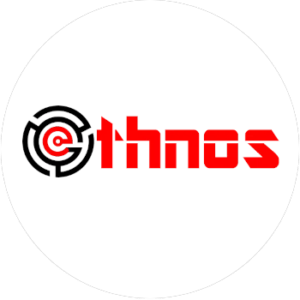Compliance Certification (BAU)
- Home
- Services
Compliance Certification (BAU)
VAPT
Security Technology Deployment & Support
CISO As A Service
Unified Identity Platform
Security Awareness Training
OUR CONTACT
ethnos@ethnos.com.ng
Call Us
+234 903 443 1566
Cybersecurity – A Major Business Decision In 2024
In 2024, cybersecurity has become a major business decision. It...
Common Tactics Used By Cybercriminals To Scam You.
It’s the final day of the international fraud awareness week!...
7 types of cyber security threats
types of cyber security threats: The internet has become an...
Cyber Attack Protection: Ethnos Cyber Solutions
Cyber Attack Protection: Cyber attack protection has become a critical...
Cyber Security: The Secret to Countering Cyber Attacks
Countering Cyber Attacks: Cyber-attacks have become a grim reality for...
Overview
Regulatory compliance and certification should not be about ticking boxes for compliance but insulation security as a business objective that drives continuous improvement, ensuring quality, and fostering trust both internally and externally, making standards in daily operations a valuable endeavor for organizations aiming for long-term success.
Our BAU services offer organizations not only the assurance of compliance but also a host of tangible and intangible benefits that enhance operations, reputation, and profitability. By compliance not as a one-time task but as an ongoing commitment, organizations can harness these advantages and position themselves strongly in a security-conscious market
Payment Card Industry Data Security Standard - BUSINESS AS USUAL
The PCI DSS – BAU activities refer to the ongoing, routine operations of organizations that handle cardholder data, ensuring they maintain compliance with PCI DSS standards.
Value derivable from these activities:
- Enhanced Data Security: The primary aim of PCI DSS is to secure cardholder data. BAU activities that adhere to PCI DSS ensure robust protection against data breaches and theft.
- Trust and Credibility: Organizations that consistently adhere to PCI DSS standards are viewed as trustworthy by customers. This boosts their reputation and credibility in the market.
- Regulatory Compliance: Complying with PCI DSS is mandatory for organizations handling card transactions. BAU activities that adhere to these standards ensure continuous compliance, avoiding potential penalties or sanctions.
- Reduced Risk of Financial Losses: Data breaches can result in hefty fines, litigation, and compensatory damages. PCI BAU activities significantly mitigate the risk of such financial setbacks.
- Competitive Advantage: Being PCI-compliant can be a unique selling point, distinguishing an organization from competitors that might not prioritize data security as highly.
- Enhanced Customer Loyalty: Customers are more likely to do business with organizations they believe will protect their sensitive information. By maintaining PCI BAU activities, organizations can foster a loyal customer base.
- Proactive Threat Management: PCI DSS BAU activities involve routinely monitoring and testing networks. This proactive approach means threats can be identified and managed before they escalate into larger issues.
- Streamlined Operations: Regularly reviewing and updating security measures can lead to a streamlined and efficient operation. Organizations can identify redundancies, ensuring optimal resource allocation.
- Employee Training and Awareness: Continuous PCI DSS adherence involves regular training and awareness programs for employees. A well-informed workforce is an organization’s first line of defense against potential security threats.
- Access to Financial Networks: Many financial institutions and card brands will only do business with PCI-compliant organizations. Consistent BAU activities that adhere to PCI standards ensure uninterrupted access to these essential networks.
In conclusion, PCI DSS BAU activities offer organizations not only the assurance of compliance but also a host of tangible and intangible benefits that enhance operations, reputation, and profitability. By treating PCI DSS compliance not as a one-time task but as an ongoing commitment, organizations can harness these advantages and position themselves strongly in a security-conscious market.
ISO International Organization for Standardization - BUSINESS AS USUAL
The ISO Integrated BAU activities refer to the ongoing, routine operations of an organization that adhere to ISO standards.
Value derivable from these activities:
- Enhanced Data Security: The primary aim of PCI DSS is to secure cardholder data. BAU activities that adhere to PCI DSS ensure robust protection against data breaches and theft.
- Trust and Credibility: Organizations that consistently adhere to PCI DSS standards are viewed as trustworthy by customers. This boosts their reputation and credibility in the market.
- Regulatory Compliance: Complying with PCI DSS is mandatory for organizations handling card transactions. BAU activities that adhere to these standards ensure continuous compliance, avoiding potential penalties or sanctions.
- Reduced Risk of Financial Losses: Data breaches can result in hefty fines, litigation, and compensatory damages. PCI BAU activities significantly mitigate the risk of such financial setbacks.
- Competitive Advantage: Being PCI-compliant can be a unique selling point, distinguishing an organization from competitors that might not prioritize data security as highly.
- Enhanced Customer Loyalty: Customers are more likely to do business with organizations they believe will protect their sensitive information. By maintaining PCI BAU activities, organizations can foster a loyal customer base.
- Proactive Threat Management: PCI DSS BAU activities involve routinely monitoring and testing networks. This proactive approach means threats can be identified and managed before they escalate into larger issues.
- Streamlined Operations: Regularly reviewing and updating security measures can lead to a streamlined and efficient operation. Organizations can identify redundancies, ensuring optimal resource allocation.
- Employee Training and Awareness: Continuous PCI DSS adherence involves regular training and awareness programs for employees. A well-informed workforce is an organization’s first line of defense against potential security threats.
- Access to Financial Networks: Many financial institutions and card brands will only do business with PCI-compliant organizations. Consistent BAU activities that adhere to PCI standards ensure uninterrupted access to these essential networks.
In summary, deriving value from ISO BAU activities is multifaceted. It’s not just about ticking boxes for compliance; it’s about driving continuous improvement, ensuring quality, and fostering trust both internally and externally. This makes adherence to ISO standards in daily operations a valuable endeavor for organizations aiming for long-term success.





